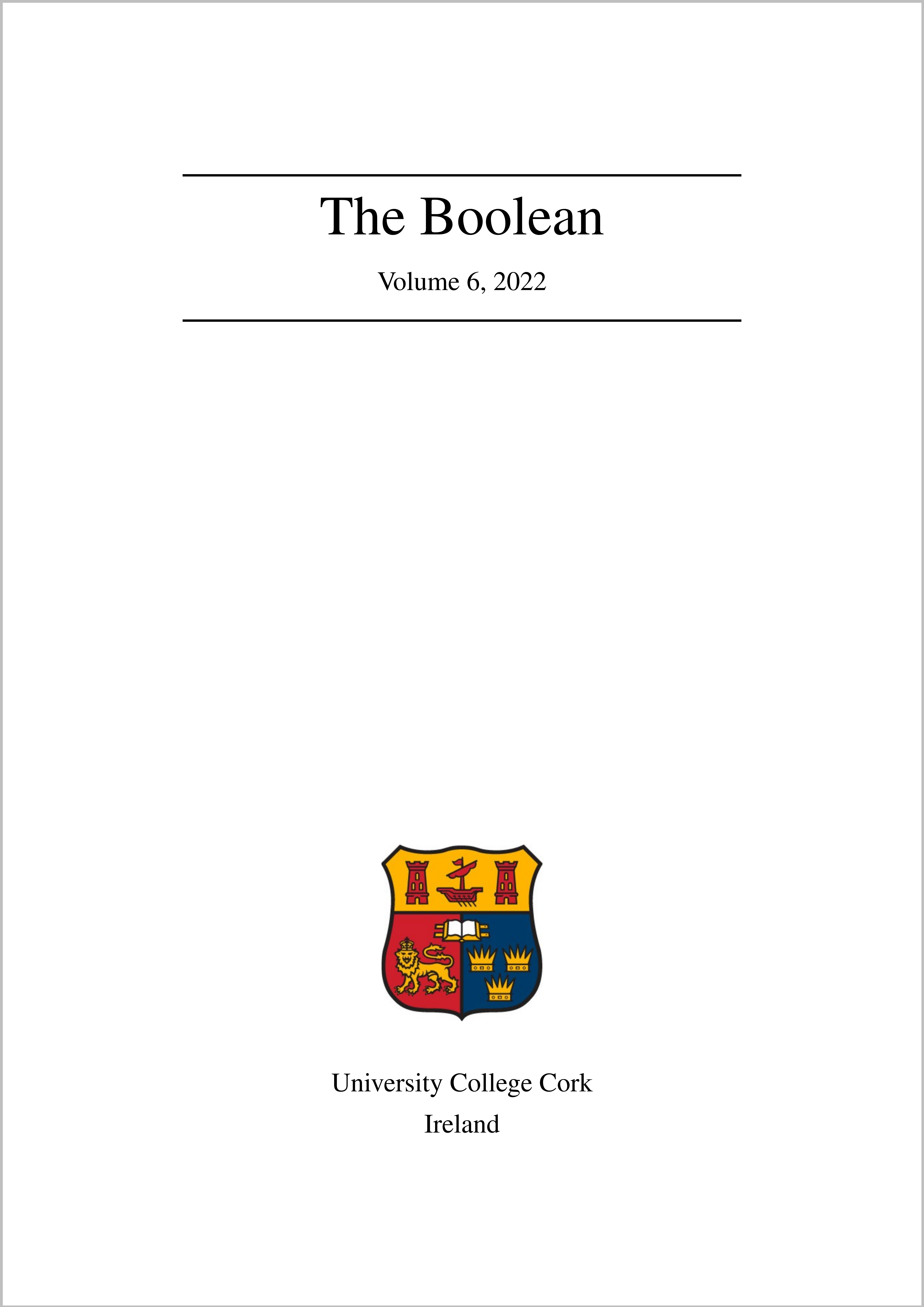Heroes of Their Time: The Development of Heroism in Early Irish Literature
DOI:
https://doi.org/10.33178/boolean.2022.1.32Keywords:
Hero, Celtic, Irish, Medieval, Headhunting, WarriorAbstract
Though medieval Irish literature is awash with characters described as ‘heroes’ by scholars and the public alike, such as Cu Chulainn and Finn mac Cumailll, what precisely is meant when ´ we describe these characters as heroic remains uncertain. This project argues that, based on an intensive comparative study of two hundred and fifty-one medieval Irish works of heroic literature, drawn predominantly from the seventh through the fifteenth centuries, that there are six common qualities connecting medieval Irish heroes. These six qualities do not exist in a vacuum they emerged in response to cultural factors and were modified as society developed. At least two of the qualities are potentially based in ancient Celtic cultural practices described by Classical authors, while others appear to be rooted in medieval Irish aristocratic lifestyles. All six qualities change as they are influenced by historical events that shift how medieval Ireland conceptualizes aristocratic violence, such as the Norse and Norman invasions.
References
Arbuthnot, Sharon. Cóir Anmann: a Late Middle Irish Treatise on Personal Names, vol. 2: Part 2, Irish Texts Society 60 (Irish Texts Society, London: 2007).
Athenaeus. The Deipnosophists. Or Banquet Of The Learned Of Athenaeus. (Henry G. Bohn, London: 1854).
Corthals, Johan. ‘Some observations on the versification of the rhymeless ‘Leinster poems’’, Celtica no. 21 (1990).
Diodorus Siculus. The Library of History of History, vol. 3, Book 4.59-8 (Harvard University Press, Cambridge, MA: 1939).
Dooley, Ann, and Harry Roe, Tales of the Elders of Ireland (Oxford University Press, Oxford: 1999).
Downey, Clodagh. ‘Níall Noígíallach and the Heroic Biography’ in Revisiting the Cycles of the Kings, Cork Studies in Celtic Literatures no. 6 (Cork Studies in Celtic Literatures, 2022): 25-56.
Flanagan, Marie Therese, ‘Irish and Anglo-Norman Warfare in Twelfth-Century Ireland’ in A Military History of Ireland (Cambridge University Press, Cambridge: 1996) 52-75.
Hamel, A. G. van. Compert Con Culainn and Other Stories, Mediaeval and Modern Irish Series 3 (Dublin Institute for Advanced Studies, Dublin: 1933).
Kimpton, Bettina. The Death of Cú Chulainn. A Critical Edition of the Earliest Version of Brislech Mór Maige Muirthemni, Maynooth Medieval Irish Texts vol. 6 (School of Celtic Studies, National University of Ireland, Maynooth: 2009).
Mac Cana, Proinsias, and Edgar Slotkin. Fled Bricrenn, an unpublished translation hosted online by the Irish Texts Society: https://irishtextssociety.org/texts/fledbricrenn.html
MacNeill, Eoin. Duanaire Finn: The Book of the Lays of Fionn, vol. 1, Irish Texts Society no. 7 (Irish Texts Society, London: 1908).
Meyer, Kuno. ‘The Wooing of Emer’, Archaeological Review no. 1 (1888): 68–75, 150–155, 231–235, 298–307.
Meyer, Kuno. ‘The Chase of Síd na mBan Finn and the Death of Finn’, in Fianaigecht: Being a Collection of Hitherto Inedited Irish Poems and Tales Relating to Finn and his Fiana, Todd Lecture Series no. 16 (Hodges, Figgis, London: 1910).
Murphy, Gerard. Duanaire Finn: The Book of the Lays of Fionn, vol. 2, Irish Texts Society no. 28 (Irish Texts Society, London: 1933).
Ní Dhonnchadha, Máirín, “Gormlaith and her sisters, c. 750-1800”, in The Field Day Anthology of Irish Writing, vol. IV: Irish Women's Writing and Traditions, (Cork University Press, Cork: 2002): 166–249.
O'Rahilly, Cecile. Tóruigheacht Gruaidhe Griansholus: the Pursuit of Gruaidh Ghriansholus, Irish Texts Society no. 24 (1922) (Irish Texts Society, London: 1924).
O'Rahilly, Cecile. Táin Bó Cúailnge: Recension I, (Dublin Institute for Advanced Studies, Dublin: 1976), pp. 220-231.
Pagé, Anna. ‘Deirdriu and Heroic Biography’, in Studia Celtica Fennica no. 15 (2018): 102-119.
Simms, Katharine. ‘Gaelic Warfare in the Middle Ages’, in A Military History of Ireland (Cambridge University Press, Cambridge: 1996) 99-115.
Stokes, Whitley. ‘The Destruction of Dá Derga’s hostel’ in Revue Celtique no. 22 (1901).
Thurneysen, Rudolf. Scéla Mucce Meic Dathó, Mediaeval and Modern Irish Series no. 6 (Dublin Institute for Advanced Studies, Dublin: 1935).
Try, Rebecca. Leadership and Virtue: A Character Analysis of Fionn mac Cumhaill and King Arthur in the Later Medieval Period, unpublished PhD thesis, Queens University Belfast, 2020.
Downloads
Published
Issue
Section
License
Copyright (c) 2022 David Taylor

This work is licensed under a Creative Commons Attribution-NonCommercial-NoDerivatives 4.0 International License.



